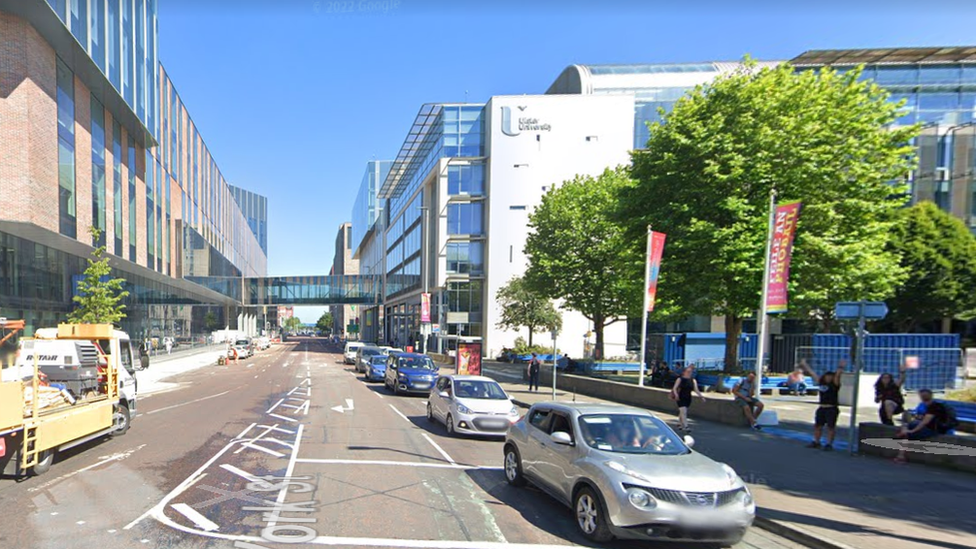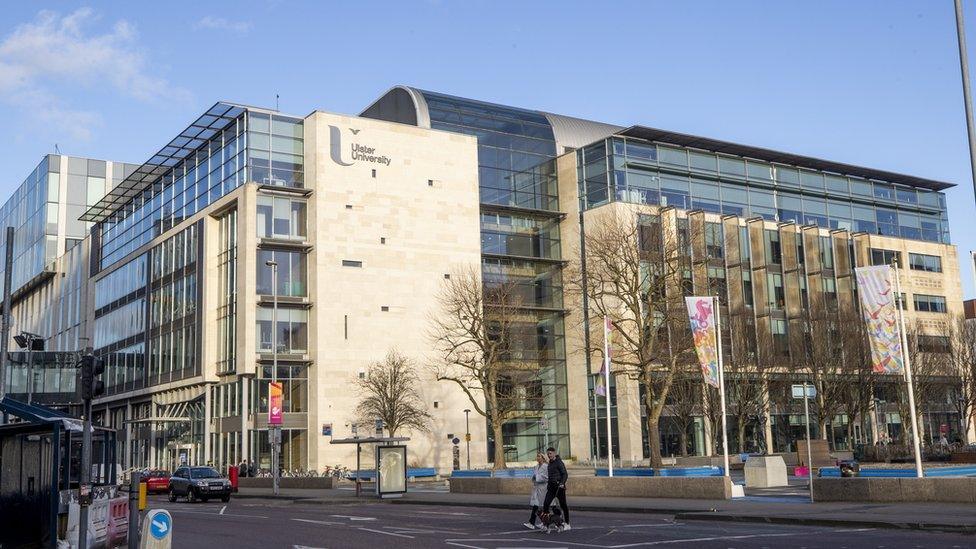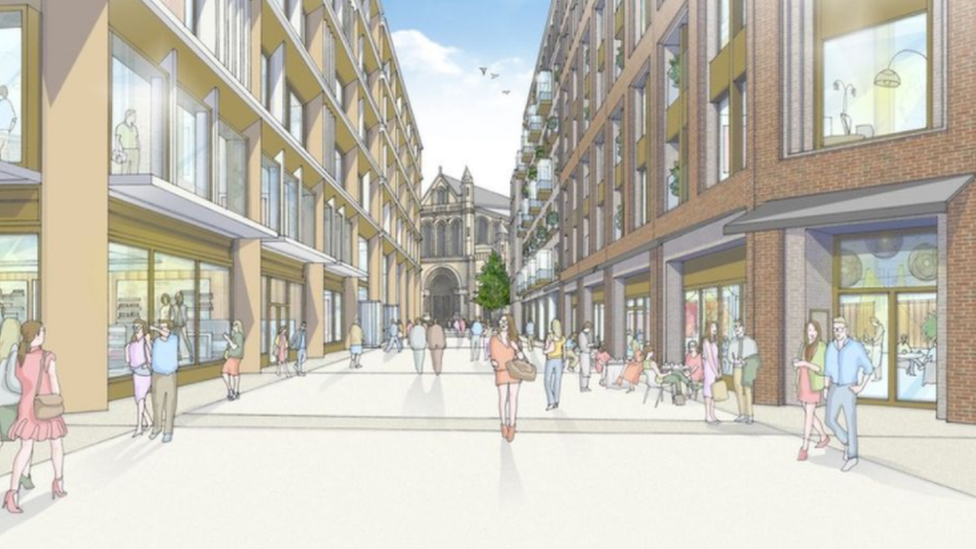Ulster University: Plan to ban cars from outside new building
- Published

The proposal would shut part of York Street which runs from Donegall Street to Great Patrick Street in Belfast
There are plans to ban almost all cars from the road in front of Ulster University's (UU) new Belfast campus for six months.
The Department for Infrastructure (DfI) has launched a consultation on the proposals for part of York Street.
It would mean that only buses, blue badge holders, bicycles and emergency vehicles could use the road.
About 15,000 staff and students are due to begin using the new building at the start of the new term later this month.
The campus, which cost about £350m, is at the north end of Belfast city centre and has been completed after a number of delays.
Almost all UU students and staff from the Jordanstown campus are moving to the Belfast building, which is opposite the existing former 'art college' building.
Thousands of students will also live in accommodation run by private providers close to the campus.
But concerns have been expressed about a number of busy roads around the university.
Much of the student accommodation is situated beside a seven lane road called Great Patrick Street which is the main route from Belfast city centre to the M2 motorway.
The Birley building at UU - the former art college - is also separated from the rest of the campus by part of York Street which runs from the old Belfast Telegraph building on Donegall Street to Great Patrick Street.
It is this part of York Street which the DfI is planning to prohibit most traffic from using.
Details of the "experimental traffic control scheme" are contained in consultation documents on the department's website.
Anyone who wishes to object to or support the plans has around three weeks to contact DfI with their views.
Wider regeneration plans for the area of the city centre close to the campus have proved to be controversial.
Belfast City Council has previously approved the plans, known as Tribeca, but they have also faced opposition from some.
Related topics
- Published25 January 2022

- Published4 September 2020
